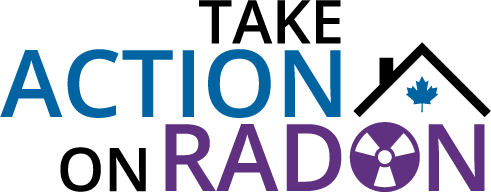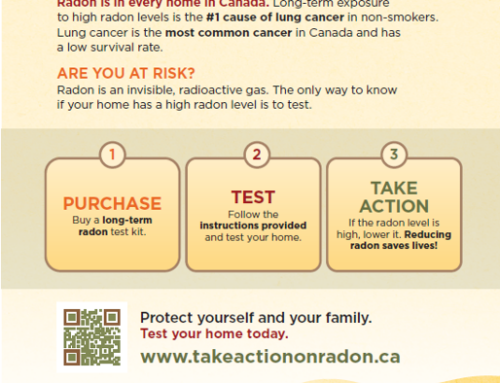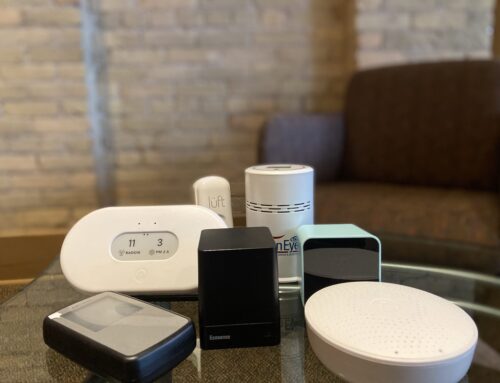In 2019, the National Radon Program (NRP) worked with the Privy Council Office Impact & Innovation Unit to perform a Behaviour Intervention and Trial Project. The results of this small pilot project found that behaviourally informed radon outreach postcards did increase the number of test kits purchased, but only slightly.
In 2020 the NRP launched a second Behaviour Intervention Project to evaluate the impact of a new radon outreach postcard. The goal of the new postcard was to increase awareness and knowledge of radon, and to encourage people to purchase a radon test kit.
The primary objective of this project was to test if a behaviourally-informed intervention (i.e. a postcard) is more effective at encouraging people to test their homes for radon in municipalities with strong grassroots radon outreach efforts and awareness. The purpose of this intervention was to test the use of direct, action oriented messaging in areas that have high radon levels in combination with high grassroots awareness/efforts vs those without.
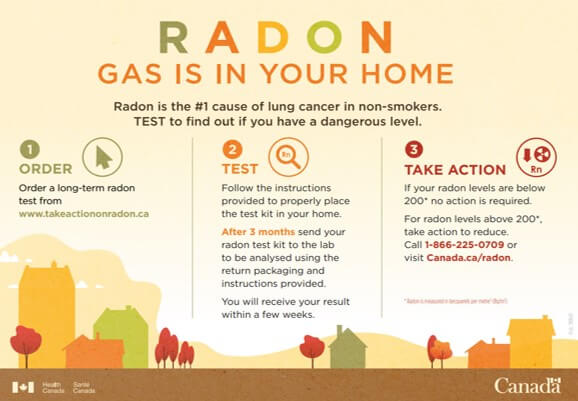
To collect radon testing data for this project Health Canada reached out to test kit providers, through the Take Action on Radon Network, to provide information for the study and request their participation. The testing plan was provided to test kit providers and a teleconference was set up to provide an overview and answer any questions. Health Canada provided a simple excel document for test kit providers to share data related to test kit sales during the testing time period. Heath Canada followed up with test kit providers through Take Action on Radon and then directly once the testing period closed. Health Canada received data from 16 test kit providers.
The results of the 2020 study found that a behaviourally informed postcard does increase awareness of radon among Canadians, and has a more significant impact on awareness / response within high grassroots communities compared to low grassroots communities. This is clearly demonstrated in the increase, year over year, in number of website visits for both Canada.ca/radon (4,188%) and TakeActiononRadon.ca (1,248%).
The study also found that a behaviourally informed postcard increases the likelihood that Canadians will purchase a radon test kit, and again a more significant increase was seen in radon test kit purchases in high grassroots communities compared to low grassroots communities. This is clearly demonstrated when comparing the data for control vs. treatment groups.
In the control group, on average, nine test kits were purchased representing approximately 0.04% of the sample. In the treatment group, on average, 58 test kits were purchased representing approximately 0.54% of the sample.
In summary, a behaviourally informed postcard increases the likelihood that Canadians will purchase a radon test kit.
However, this study showed that while a behaviourally informed postcard significantly increased radon awareness, it did not significantly increase the number of radon test kits purchased. While this study did show an increase in test kit purchases, behaviourally informed postcards do not increase the behaviour of radon testing enough given the health risk posed by long-term radon exposure.
Continue Reading
